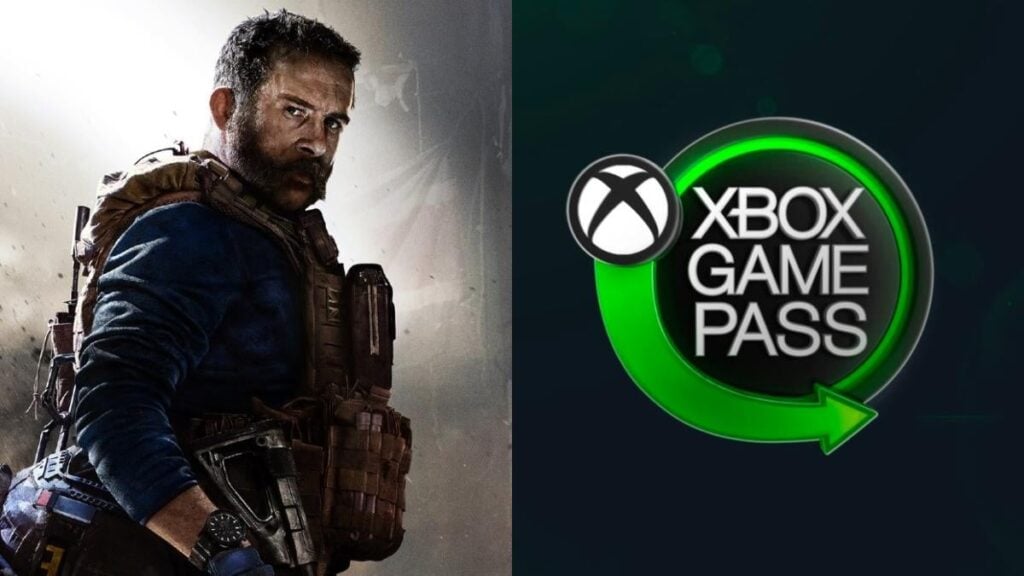Features
Breaking The Call of Duty Cycle: A Favor to Everyone

Annualized games are almost always low-effort cash grabs that are designed to separate a fool and his money. For the most part, annualized franchises quickly become stale, and while they may have been able to ride an initial wave of success to a fairly lucrative position their throne almost always sits atop a foundation of sand. Eventually, annualized games almost always fail, and yet somehow, year after year Call of Duty bucks that trend. The long-running annual release cycle of Call of Duty has made the games begin to feel very tired while simultaneously working the three designated CoD development studios to the bone. The series has reached a point at which less is more and while the time has been right for a shift to a semi-annual release schedule for years, Microsoft’s acquisition of Activision may finally make that shift financially viable.
The current development cycle that the Call of Duty franchise has settled into is spread across three primary studios each producing a new game every three years. This three-year three-studio cycle has resulted in a string of games that feel stifled and unimaginative. Over the past several years, the only signs of originality and enthusiasm have ironically come from the past: In 2017 when Sledgehammer made the unapologetically retro Call of Duty WW2, and in 2019 with the Modern Warfare reboot. As is, the series cycles through Infinity Ward, Treyarch, and Sledgehammer. In order to improve upon the Call of Duty franchise, Microsoft will have to radically rethink both the development schedules and distribution method of future CoD games. By dissolving Sledgehammer and allowing the development team to be absorbed in equal parts by Infinity Ward and Treyarch the series will be free to move to a semi-annual release cycle allowing each game the same amount of time in the oven and significantly increased post-launch support from larger more focused teams. But the only way that Call of Duty’s break from annualization could be financially viable conveniently also happens to be the Xbox’s biggest play currently, Game Pass.

Great developers make great games, but while raw talent almost never equates to quality of life, quality of life oftentimes does evolve into talent. At the core of every game are developers, and happy healthy developers are more likely to produce high-quality games. By dissolving Sledgehammer and moving to a semi-annual release schedule both remaining development studios would be handling less work with significantly increased labor. Intuitively, larger development teams putting out half as many games would be bad for business, but when accounting for the mental and physical health of the teams developing said games, the quality over quantity approach could be empowered by the Game Pass model. Not only would dissolving Sledgehammer games benefit the dev teams by relieving pressure with additional labor, but it would also allow the developers additional freedoms to experiment with new ideas making each subsequent game more innovative. In addition to each entry being higher quality and more innovative, the teams would be allotted an additional year to support the most recent release. So for an entire year, the teams could focus on balancing changes and post-release content.
For example, Infinity Ward is currently wrapping up development on Modern Warfare 2. In the proposed system they would be nearing the end of year three of the four-year cycle. When Modern Warfare 2 releases Infinity Ward will begin the fourth year of the four-year cycle. If the four-year cycle were to be adopted, the fourth year would be spent patching and balancing the game to optimize the multiplayer experience while also developing post-launch content to be released over the two years the game spends as the most recent CoD title. So fall 2022 through fall 2023 would be year four for Infinity Ward and in Fall 2023 they would be able to move the bulk of their team to begin work on whatever the next title will be leaving a skeleton crew behind to maintain Modern Warfare 2 and the cycle would repeat.
The role the publisher would play in the restructuring and revitalization of the Call of Duty franchise is key. Assuming Microsoft’s ongoing acquisition is approved, all future Call of Duty games will presumably launch on Gamepass on day one. Microsoft is uniquely outfitted to refine and improve upon the Call of Duty formula by monetizing each individual game more efficiently. Despite what the more dedicated gaming audience may think, there is a huge number of gamers that buy a console for the sole purpose of playing Call of Duty every year. Launching Call of Duty into Gamepass inherently makes the game most easily accessed on the Xbox platform and would naturally lead to the largest pool of players playing on Xbox. Because such a huge portion of the player base will be playing on Xbox, those players that buy a console just to play Call of Duty will gravitate towards Xbox and Gamepass. When it was released in November of 2021, Call of Duty Vanguard’s standard edition cost $60, the cross-generational bundle was $70, and the ultimate edition was $100. If all the post-release content were included with Gamepass and Call of Duty engagement could consistently maintain $15 per month for two years then each game could feasibly draw $360 in revenue rather than the $200 the ultimate versions of each of the two games in the same time frame would have in the existing annualized model.

Not only could Gamepass empower each Call of Duty game to potentially more than double the annual revenue but it would also function as a gateway drug type experience to expose audiences to every other game available on the service. Players who initially subscribed to Gamepass as a means of playing Call of Duty could take the time to check out Halo Infinite, Doom Eternal, or Wolfenstein. Eventually, those same players could branch out into other genres and experience greats like Ori and the Blind Forest, Quantum Break, or The Outer Wilds. A switch to a biennial release cycle would drive engagement in Call of Duty by allowing Microsoft to not monetize nearly as aggressively as Call of Duty has been historically which in turn would drive overall engagement in the Xbox ecosystem while also making room for other first-party Microsoft titles to fill the flagship holiday spot every other year.
To change the release schedule for Call of Duty would obviously benefit the developers, and if done correctly could potentially benefit the publisher, but it would also benefit the consumer making for the highly elusive “win-win-win” scenario. As mentioned above, allowing the development teams additional time to create the games we all love to spend so much time playing will make for better and more innovative games which is practically the definition of good for the consumer. It is no secret that most of the audience didn’t, particularly enjoyVanguard or Black Ops: Cold War, but going back in time 10-15 years we were getting banger Call of Duty games every single year. At this point, the series is still capable of delivering great games like 2019’s Modern Warfare but after nearly 20 years of being on top of the mountain franchise fatigue has taken its toll. So a renewed focus on quality combined with a bit of deliberate absence would undoubtedly result in our hearts growing fonder of what’s to come.
If the four-year biennial cycle were to be adopted, not only would the quality of each game presumably increase but the Call of Duty community would finally be given the opportunity to flourish in a way never previously possible. An annualized release cycle means that between the adoption of the newest title, balancing patches, and marketing for the next game the community is constantly in a state of whiplash giving each title only roughly five months in the spotlight after finding its sea legs. Call of Duty games every two years and an intentional focus on post-release content would allow more time for the community to build a true meta around something other than Warzone which will also drive long-term engagement with the series. An extra year for each game would allow for better more complete experiences at launch followed up by two years of focused and intentional support and post-release content, a major win for a community that, frankly speaking, has been through some of the worst highs and lows in the industry over the past decade.

And finally, a shift in the Call of Duty release cycle could mean more games and better games from other Microsoft first-party studios. Even if Call of Duty isn’t your jam, the series being introduced to Gamepass would drive subscriptions giving everything under the Microsoft first-party umbrella more financial resources to experiment with. If games like Psychonauts 2 or Ori and the Will of the Wisps have less pressure to be perceived as a success because of the subsidization made possible by a seemingly never-ending slew of Call of Duty content then the non-Call of Duty studios would presumably be given more freedom to experiment because Microsoft would know they have Call of Duty money to rely on. So even if you don’t ever play Call of Duty, a change in the release cycle could absolutely make a difference in the games you play on Gamepass.
A no-lose situation is extremely rare and admittedly there are plenty of ways that Microsoft’s moving Call of Duty games to a biennial release could go wrong. But if done correctly, it could be beneficial for everyone involved and even some developers and players that are completely uninvolved with Call of Duty. Microsoft and their Gamepass service are fundamental to the success of this particular model and really the only way the whole thing is financially feasible. So while Microsoft’s approach with the other development studios they’ve acquired has been largely hands-off, hopefully, that isn’t the case with Activision as Call of Duty isn’t the only thing within that company that is in deep need of a major makeover.

-

 Features4 weeks ago
Features4 weeks agoGet Ready: A Top Isekai Anime from the 2020s Is Headed to Hulu!
-

 Features3 weeks ago
Features3 weeks agoSocial Gaming Venues and the Gamification of Leisure – A New Era of Play
-

 Features3 weeks ago
Features3 weeks agoSolo Leveling Snubbed?! You Won’t Believe Who Won First at the 2025 Crunchyroll Anime Awards!
-

 Culture3 weeks ago
Culture3 weeks agoThe Global Language of Football: Building Community Beyond Borders
-

 Technology4 weeks ago
Technology4 weeks agoIs Google Binning Its Google Play Games App?
-

 Technology4 weeks ago
Technology4 weeks agoHow to Download Documents from Scribd
-

 Guides4 weeks ago
Guides4 weeks agoBoosting and WoW Gold: Why Prestige and Efficiency Drive the Modern MMO Player
-

 Features2 weeks ago
Features2 weeks agoFarewell to a Beloved 13-Year-Old Isekai Anime That Brought Us Endless Laughter
-

 Technology2 weeks ago
Technology2 weeks agoGamification and Productivity: What Games Can Teach SaaS Tools
-

 Features1 week ago
Features1 week agoThis Upcoming Romance Anime Might Just Break the Internet; Trailer Just Dropped!
-

 Features3 weeks ago
Features3 weeks agoWait, What?! Tom & Jerry Just Turned Into an Anime and It’s Glorious!
-

 Features21 hours ago
Features21 hours agoDon’t Watch These 5 Fantasy Anime… Unless You Want to Be Obsessed




